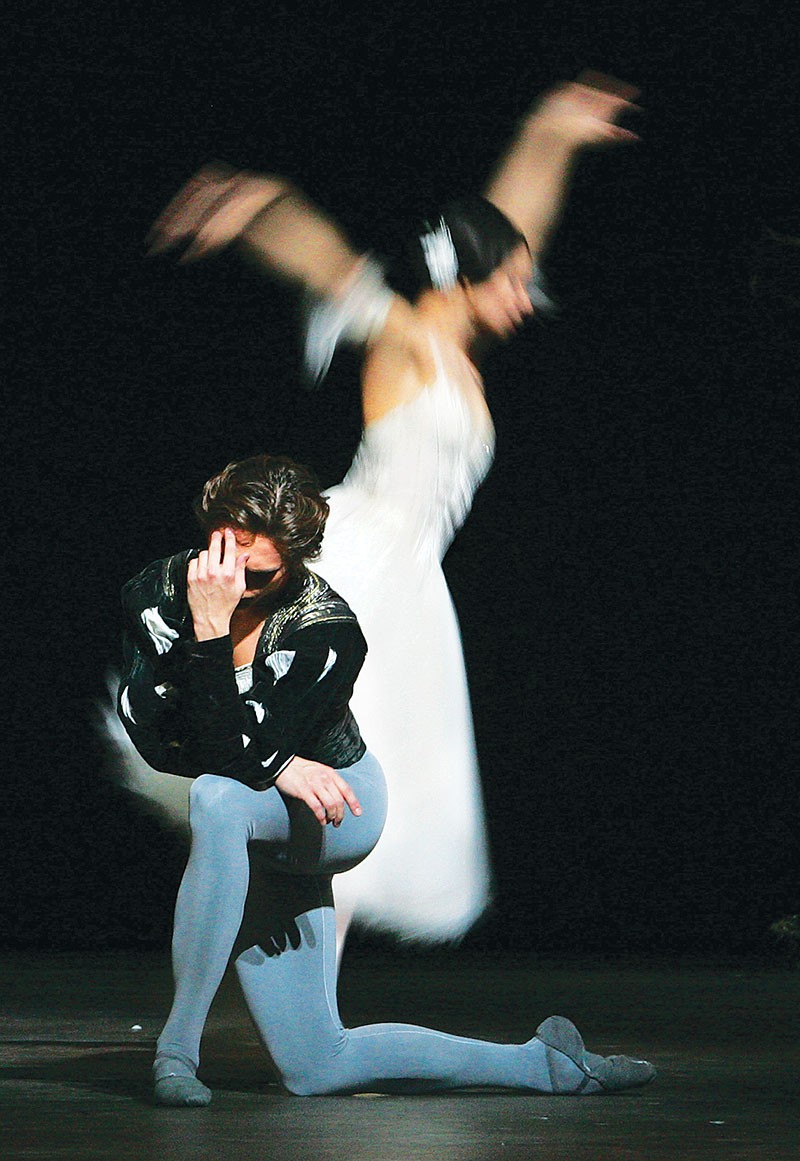A four-year wait for international ballet star Ivan Putrov came to an end on Nov. 27, when his own show, “Men in Motion,” was staged in the National Opera of Ukraine in his hometown Kyiv.
The day after the show, as Putrov talked to the Kyiv Post, he gushed about the positive reception given to his show, which he first staged in 2012, and that he had long dreamed of bringing to his home.
“It was very pleasing to see the show going ahead, and the audience arriving and being happy from the beginning,” Putrov said, laughing.
“It even felt like the whole audience was fake, and paid to clap and cheer,” he joked.
The 36 year-old ballet dancer, who moved to London as a child, has a busy schedule. Straight after the interview with Kyiv Post he flew back to London, from where he will proceed to the United States, in order to dance in the ballet “The Nutcracker.”
His father is with him during the interview and sometimes contributes to his answers.
Despite moving to London Putrov comes to Kyiv regularly.
“Maybe I also need to bring ‘Men in motion’ to Kyiv again. What do you think? Should I bring it again?” Putrov asks.
Artistic childhood
Putrov, who was born in Kyiv in 1980, has had an impressive dancing career, including being the UK Royal Ballet’s principal from 2001 to 2010, winning the UK’s National Dance Award for Outstanding Young Male Artist (Classical) and starring in famous shows all over the world.
His parents Natalia Berezina-Putrova and Oleksandr Putrov (who now works as a photographer) were ballet dancers at the National Opera of Ukraine.
“My mom wanted me to dance and my dad didn’t. But I did karate. Right, dad?” Putrov looks at his father.“He’s not listening.”
Putrov, initially found karate more enjoyable, and considered ballet too mainstream: “Everybody danced (at the time),” he said.
But he changed his mind after playing his first stage role, Lukashik, in “The Forest Song” (based on Lesia Ukrainka’s famous play) at the National Opera, at the age of 10, shortly after starting ballet lessons.
After winning Prix de Lausanne competition in Switzerland in 1996, Putrov was invited by the then director of London’s Royal Ballet School, Dame Merle Park, who was a judge at the competition, to study at the famous school.
“I really wanted to work with balletmaster and teacher Herman Zamuel,” Putrov said.

Roberta Marquez (behind) as Giselle and Ivan Putrov as Count Alrecht perform during a Royal Ballet dress rehearsal of Giselle at The Royal opera House in London, on Jan. 9, 2006. (AFP)
Not just a dancer
Apart from having an impressive dancing career, Putrov now produces his own shows. “Men in Motion” is among his biggest.
The ballet show is a retrospective of the development of men’s ballet from Post-Romanticism to contemporary dance, and was inspired by prominent 20th century male dancers like Serge Lifar and Vaslav Nijinsky, both of whom were also born in Kyiv.
“At that time it was unusual for male dancers to take the spotlight. Of course, over history we have had King Louis XIV (a ballet enthusiast), but it was still uncommon,” Putrov said.
“But nowadays we cannot imagine ballet without men.”
His other projects include “The Most Incredible Thing,” for which the pop-duo the Pet Shop Boys wrote the music: “We worked on it for around six years, and sometimes things went rather slowly.”
Putrov says all his projects are equally interesting to him, and it is impossible to pick out a role or a show that stands out from the rest.
“I live in the moment. What I’m doing right now is always the most important thing for me,” said Putrov.
Work philosophy
Putrov says it is important for all artists to retain a playfulness inside them.
“If you don’t have this quality, it is (called) profanity. You come, do your work, and leave – but you actually don’t care.”
He compares artists to children, who tend to change their mood very fast.
“I think this so-called childishness is a characteristic of all artists, not just dancers. Our moods change quickly, and we need to control it,” he said.
Sometimes this means it is difficult to maintain attention and motivation, Putrov said.
“As with everyone, it still happens. But then I will be at an exhibition, for example, and the art encountered will inspire me to continue working.”
When Putrov ends his dancing career (“which might never happen”, he jokes), he would like to stay in the world of theater that he was born into. Becoming a producer was a logical next step for the dancer.
“If on the one hand I can hold onto an idea, and with the other hand make it come to life, I am a complete human being, from the creative point of view,” he said.
The dancing legend speaks highly of the Ukrainian national ballet, which he considers a big part of the nation’s culture.
“Every year two to three new productions come out, and that’s a good figure (for an opera theater). Maybe it doesn’t cost so much here, but people love to dance here, and they are given the best possible conditions to do so.”
